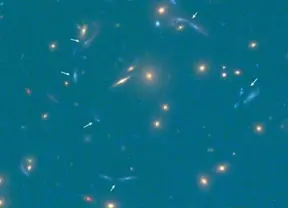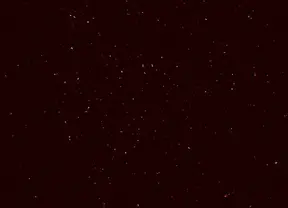Americanastronomershaveidentifiedagalaxythatappearstohavealmostnodarkmatter,previouslythoughtafoundationuponwhichgalaxiesarebuilt.InastudypublishedonWednesdayin

Foralongtime,theprevailingtheoryofsourcesofmatterwasthatitwasmostlylocal;theatomsthatmakeupourplanetandourbodieswerefromprettycloseby.Butnow,researchersatNorthw

Thanks to an amplified image produced by a gravitational lens and the Gran Telescopio CANARIAS, a team of scientists have discovered one of the brightest galaxies known from the epoch when the universe had 20 percent of its present age.

The latest estimation that there might be 10 times more galaxies in the universe than previously thought requires more powerful telescopes to observe the "missing" galaxies and China can be a strong player in this field, astronomers said.

The first image snapped by the MeerKAT radio telescope, which is still being constructed, has revealed 1,300 new galaxies. Just imagine how many galaxies this monster will capture when it’s operating at full capacity. Previously, only 70 galaxies were known in the area the image was snapped.

As many as half of all stars may be orphans that lie in what had been thought to be dark spaces between galaxies, according to a sounding rocket experiment conducted by U.S. space agency NASA.